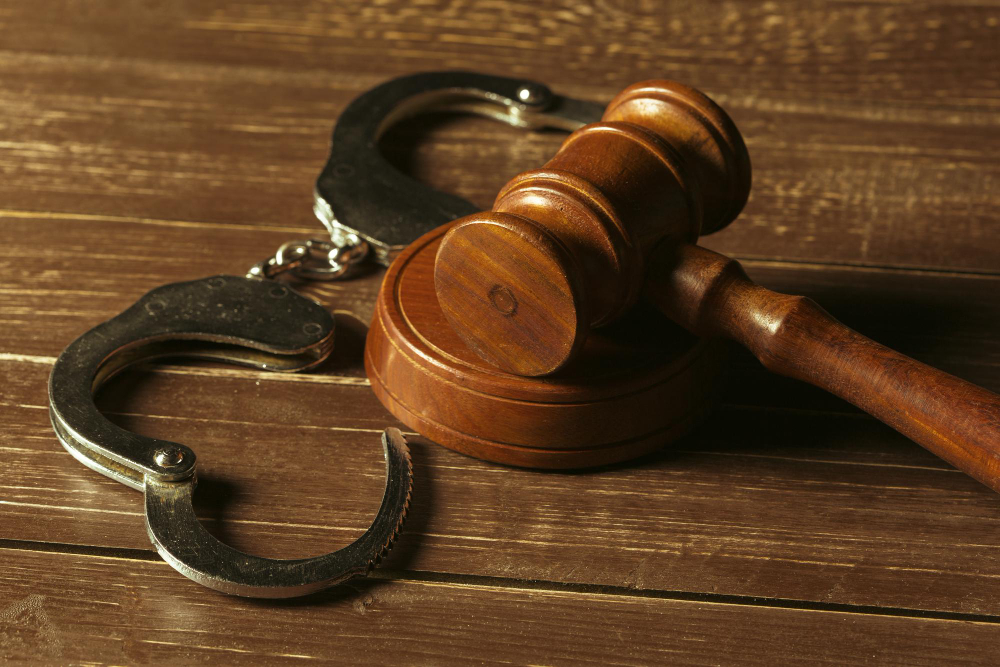


The justice system's labyrinth can often lead individuals to a crossroads where freedom is a bargaining chip. It's at this juncture that the question arises -- what can you use as collateral for bail bonds? The answer is as varied as the legal landscape is complex, and understanding the parameters can make a monumental difference in navigating the intricacies of release while a case unfolds.
In this comprehensive breakdown, we'll explore the nuanced world of bail bond collateral. Whether you're in Orlando, FL, seeking avenues to secure your release or simply unraveling the mysteries of bail bonds, this guide has you covered.
When you or a loved one is in the unsettling grips of the legal system, procuring a bail bond can be a lifeline. In its simplest form, a bail bond is a financial guarantee to the court that the defendant will appear before the judge when required.
Unlike the full bail amount set by the court, a bail bond typically requires a fraction of the total cost, usually 10%, to be paid upfront. This is where the concept of collateral comes into play; often, it's a demand for the bail bondsman to secure their investment.
In Orlando, FL, and beyond, a signature alone might not suffice, prompting the need for tangible assets to underwrite the bail bond.
The concept of collateral isn't groundbreaking by itself, but what constitutes acceptable collateral for bail bonds can be more fluid than many anticipate. Here are some common forms of collateral that can be used to secure a bail bond, making it possible to meet the requirements of the bond agent and gain provisional freedom:
A homeowner or property holder can pledge the equity in their property as collateral. The title to the property must be clear of liens, and an appraisal is usually necessary to assess the real value for consideration. In some instances, property listed for sale may also be approved, as long as the estate's value is not in question.
Jewelry, antiques, and other high-value items, when they hold a clear and documented value, can be submitted. Verification, such as professional appraisals, recent purchase receipts, or insurance evaluations, may be required to ascertain their worth.
Similar to property, a vehicle's clear title provides the same financial leverage for a bail bond. The make, model, year, and condition can influence the value attributed to it.
In cases where the bail is modest or the financial liquidity of the suspect is certain, the bail bond company may permit the full bail amount in cash or verified funds to be deposited as collateral.
When it comes to securities, their tangibility holds great value. Stocks and bonds serve as stable collateral options, validated by their consistent valuation on public markets.
For smaller bail amounts, a professional or community member, as guarantor, may offer a personal guarantee to have the defendant appear at all required court dates.
The acceptance of collateral is not a unilateral decision. The bail bond company will scrutinize the submitted assets to ensure they comply with their risk assessment parameters. Credit history, current encumbrances, and market volatility are factors that might sway the acceptability of the collateral.
For those who can leverage a healthy financial portfolio and assets in good standing, the collateral exchange for bail bonds in Orlando, FL, might be less arduous. Conversely, for individuals with more limited financial resources, the bond process could be more challenging.
In any bail bond transaction, establishing a meaningful partnership with your bail bondsman is pivotal. Transparency and open communication play a central role in negotiating favorable terms. It's also crucial to understand that while bail bond companies may seem inflexible, there's often room for discussion and revision of terms based on the specific circumstances.
Navigating the world of bail bonds and the collateral associated with them is not an endeavor to undertake alone. Seeking the guidance of a qualified attorney can shed light on legal implications, while financial advisors can offer insights into the most equitable distribution of assets for bail bond purposes.
In conclusion, the collateral for bail bonds can come in various forms, but at its core, it's about assurance and risk mitigation for both the bail bondsman and the court. Understanding the assets that can be used and the parameters governing their acceptance empowers individuals to approach the bail bond process with clarity and fortitude.
If you find yourself entangled in the legal web and need bail bonds in Orlando, FL, make sure to reach out to Mike Snapp Bail Bonds. Their experienced team can provide the resources and knowledge needed to help secure your release and chart a course to face the legal process with certainty.
Remember, the law can be uncompromising, but with the right steps and acceptance of responsibility, the path to freedom can often be unlocked.